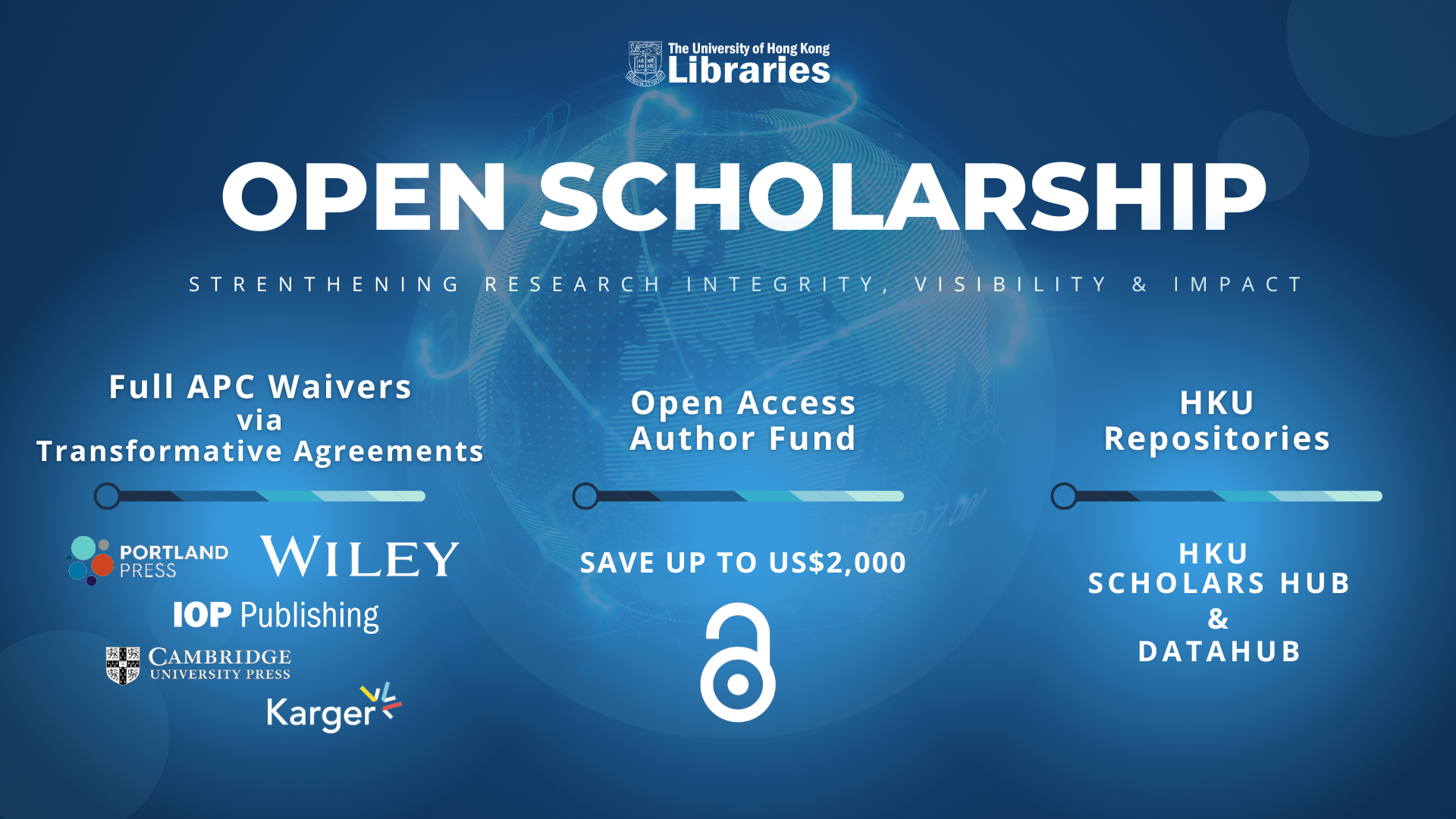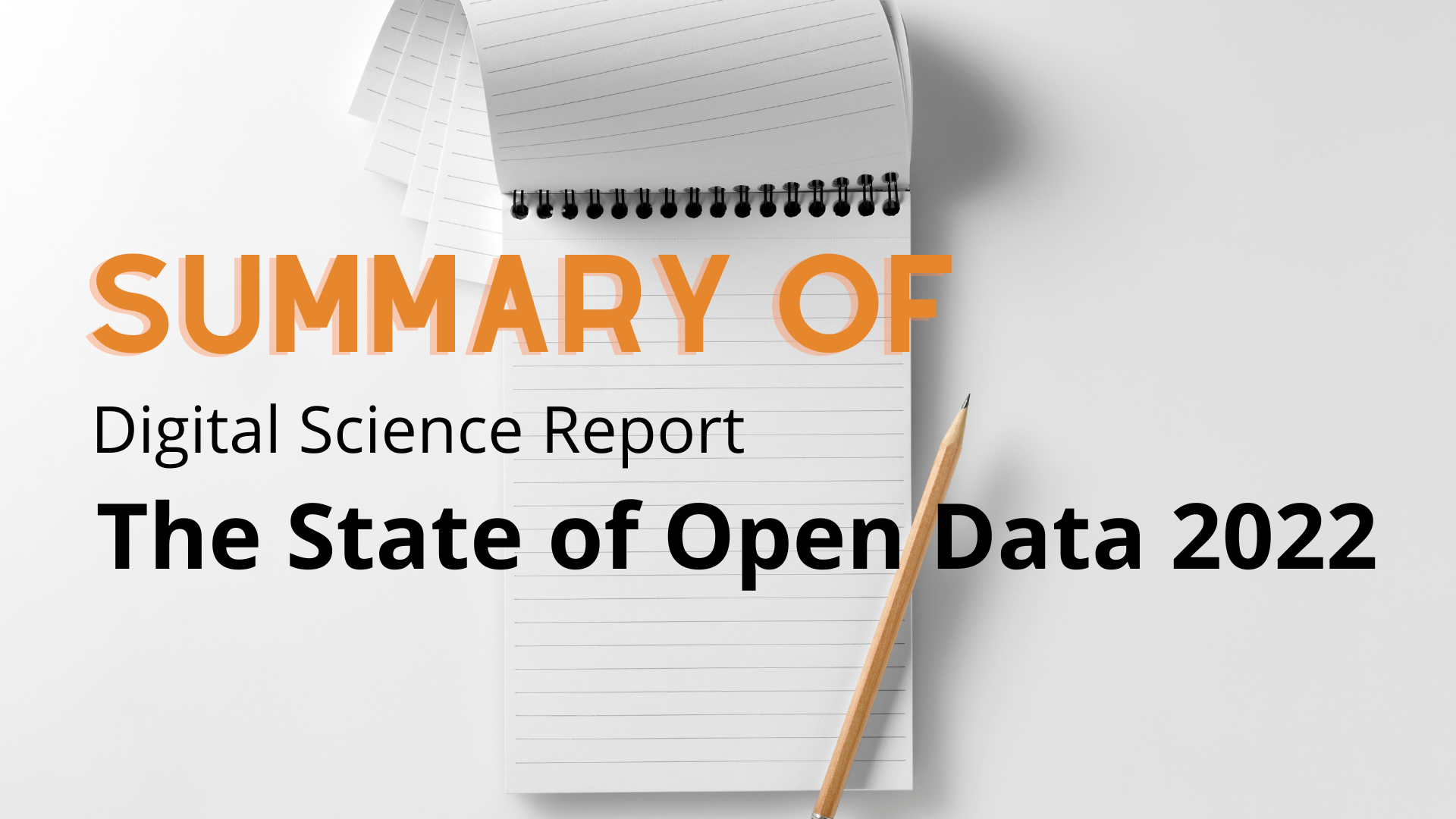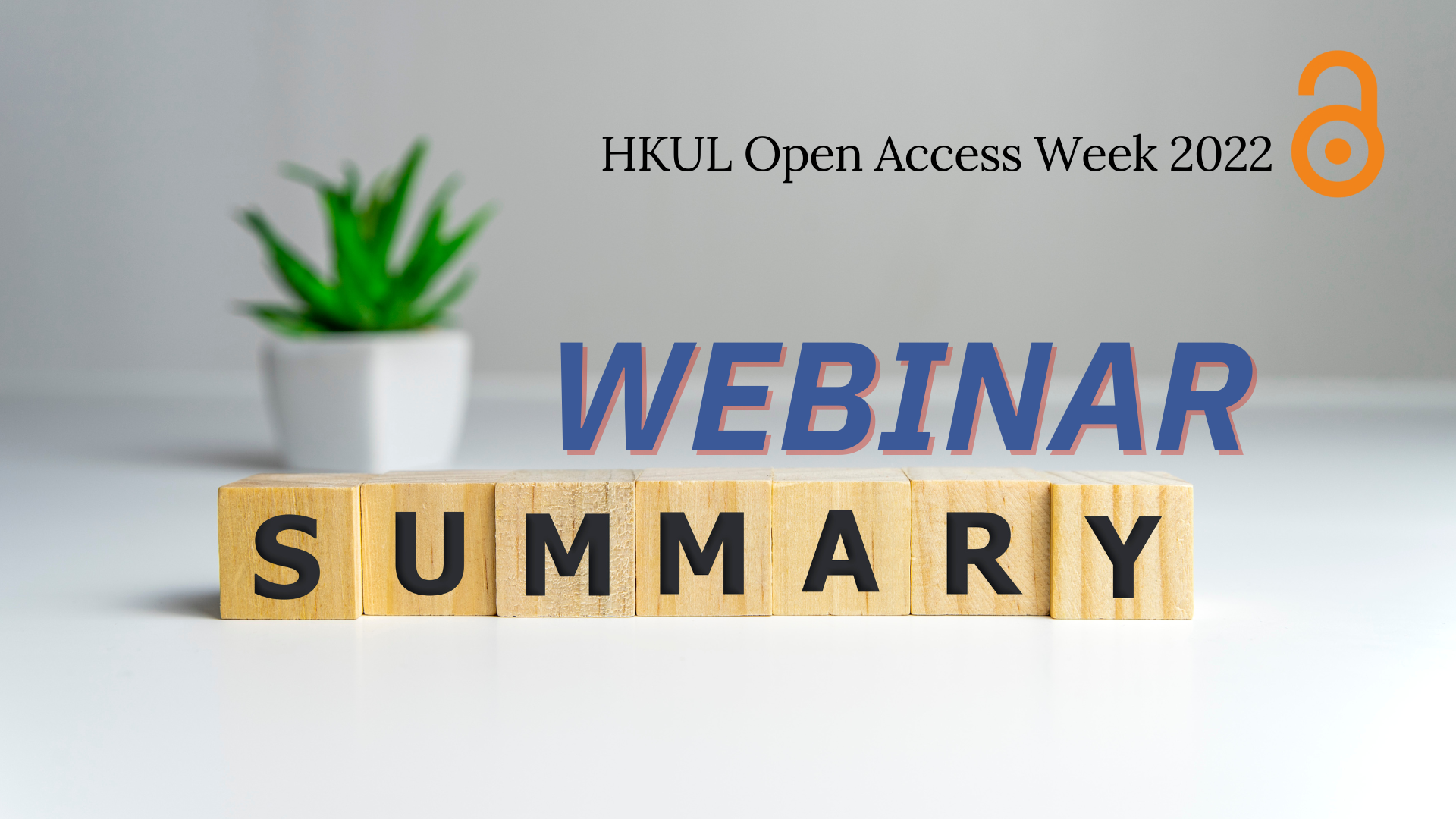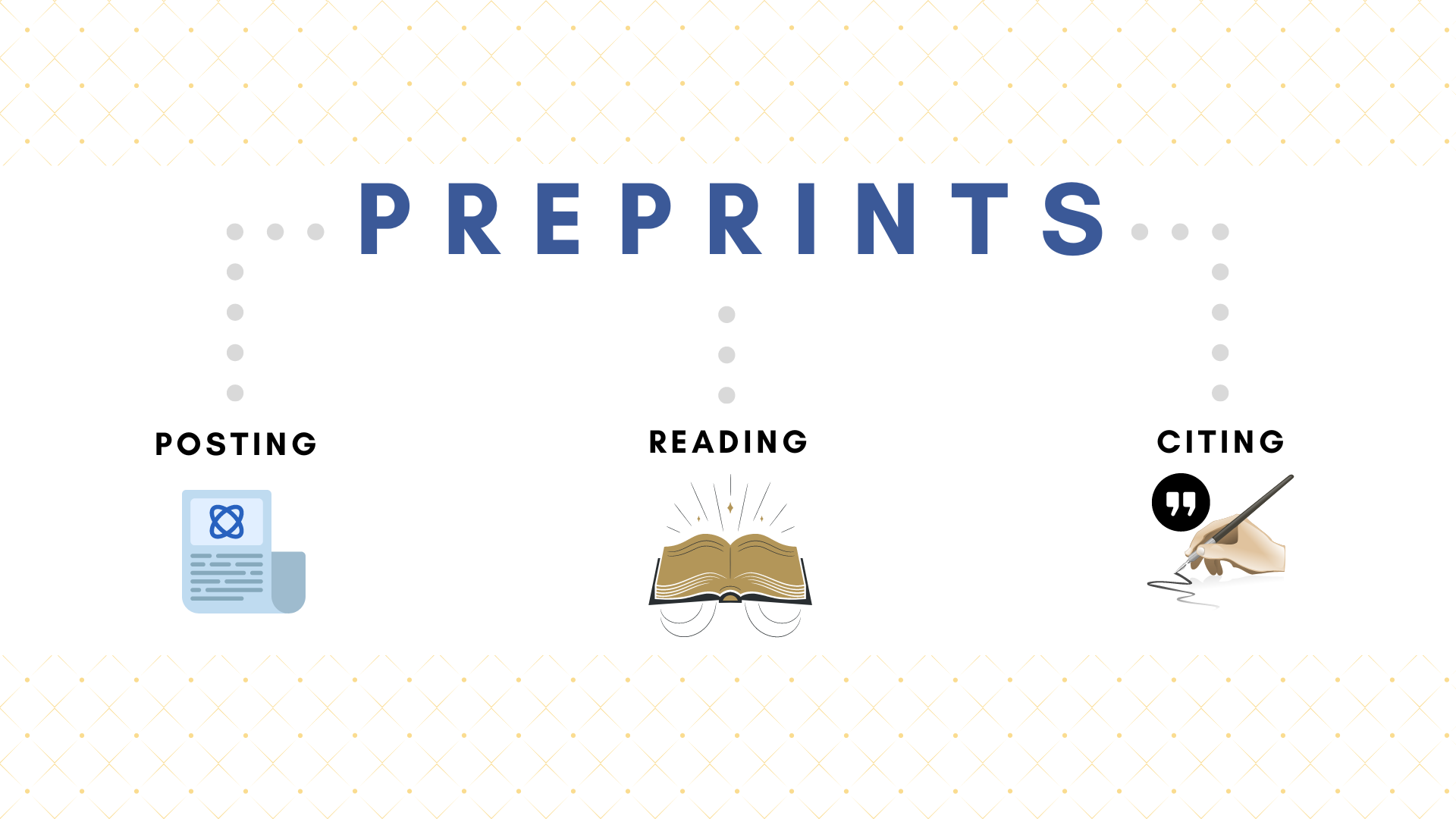Category: Open Access

An Impactful Initiative: A Summary of HKU Libraries Open Access Author Fund in 2022/23
— by Fanny Liu The HKU Libraries Open Access Author Fund, a key initiative of the Libraries to support open access by HKU researchers, has been run for the first financial year. Join us in celebrating success with a few outcome snapshots. Applications In the financial year 2022/23, the Fund supported 84 journal articles authored…
Read More
A Step Forward Towards Open Access: The RGC Publication Gateway
— by Florence Ng The concept of Open Access (OA) in scholarly research community seeks collaborative efforts from different stakeholders to grant free and open online access permanently to academic information, such as journal article publication and research data, etc. As a major academic research funder in Hong Kong, the Research Grants Council (RGC) revealed…
Read More
Avoid Falling Prey to Predatory Journals
— by Fanny Liu Predatory journals The emergence of predatory journals (fraudulent, deceptive, or pseudo-journals), journals with deceptive and dishonest practices, has been reported in recent years [1-4]. The journals falsely claim to be offering peer review and publish all articles, regardless of their research rigor, in exchange for a fee. Predatory journals exploit the…
Read More
HKU Libraries Supports Open Scholarship
— by Florence Ng HKU Libraries commits to promoting Open Scholarship, which includes enabling open access (OA) to research publications, research datasets, metadata, along with research workflows and other types of outputs. We believe Open Scholarship principles can strengthen research integrity, increase visibility, and enhance the impact of the University. Let’s have a look on…
Read More
Towards a Framework to Measure Open Science Practices – PLOS Open Science Indicators
— by Fanny Liu Open Science is “transparent and accessible knowledge that is shared and developed through collaborative networks” (Vicente-Saez & Martinez-Fuentes, 2018, p. 434). It encompasses emerging trends such as open code, open data, open access, and more. PLOS (Public Library of Science) is a non-profit, open access publisher in science and medicine, and…
Read More
State of Open Data 2022
— by Fanny Liu The State of Open Data 2022 survey was conducted in May – July 2022, and received over 6000 responses by respondents from across different regions, in different fields of interest, and at different career stages. Most trends are encouraging around the adoption and acceptance of open data. A majority of the…
Read More
Event Summary – Open Science and Open Access Publishing: Integrity and Innovations
— by Fanny Liu The Open Science and Open Access Publishing: Integrity and Innovations event was a great success with around 150 researchers, students, editors, and librarians from countries across the Asia-Pacific region! Organised by HKU Libraries and supported by iGroup Asia Pacific, PLOS, and DOAJ, the event was held on 28 Oct 2022 at…
Read More
Open Science and Open Access Publishing Webinar 2022
— by Florence Ng The HKU Libraries is organizing a webinar regarding Open Science and Open Access Publishing on 28 October 2022 (Friday) from 2:00 p.m. to 4:00 p.m. (Hong Kong time). Guest speakers from iGroup Asia Pacific, PLOS, and DOAJ are invited to deliver speeches related to open sciences and best practices in open…
Read More
Ways to boost your citations – Data Sharing
— by Florence Ng Data sharing is getting support from the academic communities as favourable practice in scholarly publishing. It can enable researchers to replicate findings, build on others’ expertise, and reuse existing data for making new discoveries (Gilmore et al., 2018). While it brings key benefits to scientific progress and the whole research community,…
Read More
Preprints 2: Concerns and Implications
— by Fanny Liu Following the previous post on introduction and benefits of preprints, this blog post will briefly introduce concerns on preprints and some implications to readers and authors. Missed the previous post? Check the post here. Concern of preprints Quality While preprints play an unprecedented role in promoting timely dissemination of biomedical knowledge…
Read More